Features of the political regime of Great Britain
DOI :
https://doi.org/10.34069/AI/2023.64.04.29Mots-clés :
democracy, features, Great Britain, political regime, totalitarianism.Résumé
The purpose of this article is to study the features of the political regime of Great Britain. Methodology. Methodological research has found its tactical expression in the following research methods: monographic, logical method, dogmatic, systemic, system analysis, historical, analyzes and synthesis Research results. The structural elements of the form of the State, which is characterized, among other things, by the form of the State and political regime, are considered. It is established that the political regime is a broader concept than the State or State and legal one. Scientific approaches to the concept of political regime, its forms and features, which are usually analyzed to determine its essence, are studied. Practical meaning. On the basis of the proposed characteristics, the peculiarities of the political regime of Great Britain, which is defined as democratic, are described. Value/originality. It is determined that there was a threat of introducing a totalitarian regime in Great Britain, however, democracy protected the monarchy from totalitarianism.
Téléchargements
Références
Font, M., & Cardoso, F. H. (2001). Charting a New Course: The Politics of Globalization and Social Transformation. Fernando Henrique Cardoso. US: Rowman & Littlefield Publishers. https://acortar.link/dAy9Sn
Garretón, M. A. (2004). Incomplete Democracy: Political Democratization in Chile and Latin America. US: UNC Press Books. https://uncpress.org/book/9780807854839/incomplete-democracy/
Hal, B., Yehorova, O., Zienkin, M., Kolisnyk, D., Lytvynenko, V., & Poukh, A. (2011). Political Science: Educational and methodological guide for external students. Dnipropetrovsk: DVNZ "National Mining University". https://ipt.nmu.org.ua/ua/library/Politologiya_dlya_ekstern.pdf
Legislation (1999). House of Lords Act, 1999 (c. 34). https://www.legislation.gov.uk/ukpga/1999/34
Legislation (2005) Constitutional Reform Act 2005 (p. 4). https://www.legislation.gov.uk/ukpga/2005/4/contents
Leshchenko, R.M., & Zaika, A.V. (2018). "Relations between State and Civil Society in Great Britain: Experience for Ukraine". Forum Prava, 3, pp. 48–55. https://acortar.link/9Ee7l8
Kyrychenko, V. M., & Kurakin, O. M. (2010). Theory of state and law: modular course: training manual. Kyiv: Center of Educational Literature. http://books.zntu.edu.ua/book_info.pl?id=163022
Makarenko, L. P. (2016). “Problems of communicative interaction between the state and civil society”. Hileya, 106(3), pp. 334–338, https://acortar.link/b6BrVI
Matsiievskyi, Yu. (2006). Between authoritarianism and democracy: the political regime after the "Orange Revolution". Political Management, 5, pp. 18-32. https://core.ac.uk/download/pdf/38339071.pdf
Ministry of Justice (2008). A national framework for greater citizen engagement. A discussion paper – published July 2008. https://data.parliament.uk/DepositedPapers/Files/DEP2008-1881/DEP2008-1881.pdf
O’Donnell, G. A., Schmitter, P. C., & Whitehead, L. (1991). Transitions From Authoritarian Rule: Comparative perspectives. Baltimore: Johns Hopkins University Press, 1991. https://hdl.handle.net/1814/22003
Pempel, T. J. (ed.) (1990). Uncommon Democracies: The One-Party Dominant Regimes. Cornell University Press. http://www.jstor.org/stable/10.7591/j.ctvr7f8kn
Schmitter, P. C., & Karl, T. L. (1991). What democracy is. . . and is not. Journal of Democracy. https://acortar.link/AgTgSk
Skakun, O. (2001). Theory of the State and Law: a textbook. Kharkiv: Konsum. http://politics.ellib.org.ua/pages-cat-51.html
Sukhonos, V.V., Volochay, Yu. V., & Sokolenko, O.P. (2017). "Monarchical Form of Government and the Totalitarian Political Regime: Dichotomy of Antinomy and Symbiosis". Legal horizons, 4(17), pp. 22-29. https://acortar.link/NxXpPf
UK Parliament (2023a). House of Lords. https://www.parliament.uk/business/lords/
UK Parliament (2023b). House of Commons. https://www.parliament.uk/business/commons/
Webley, L., & Samuels, H. (2021). 12. Responsible Government and Constitutional Conventions. In Complete Public Law: Text, Cases, and Materials. Oxford: Oxford University Press. https://doi.org/10.1093/he/9780198853183.003.0012
Yakovenko, N. (2017). "British Experience on Democratic Interaction between Power and Opposition". The Problems of World History, 1(3), pp. 63-80. https://bibliotekanauki.pl/articles/894467




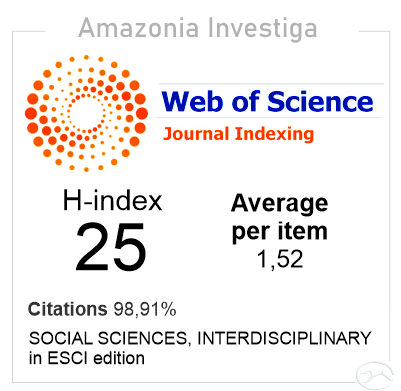







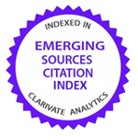





















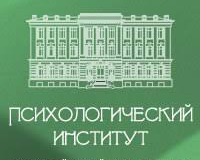












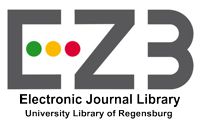





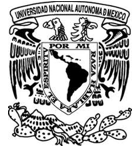











.gif)






